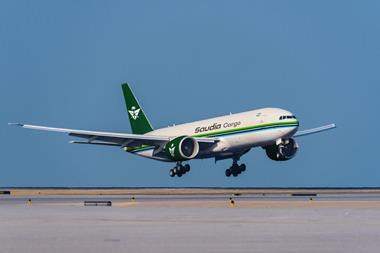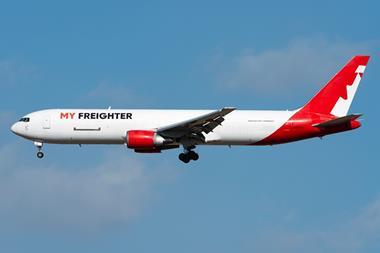China Southern Air Logistics will become the first Chinese carrier to offer China import bookings on the WebCargo platform.
WebCargo said that China Southern would gain access to the platform's 3,500 freight forwarder users, while the forwarders would be able to see live rates and make bookings on services into China. Payments can also be made through the platform.
The platform added that carriers on WebCargo now account for over 50% of total air cargo capacity, while in the last quarter a record number of bookings - almost 200,000 - were made on the platform.
Chengqing Tao, executive vice president of China Southern Air Logistics, said: “Digital transformation has become key to staying ahead. We are happy to embrace e-solutions to optimise our sales, and believe our cooperation with WebCargo will bring considerable added value to our customers.
"Aiming to become a competitive global integrated logistics provider, China Southern Air Logistics will devote great efforts to enhancing our digital capabilities to provide quality service.”
Zvi Schreiber, chief executive of the Freightos Group, added: “eBookings are already transforming air cargo in many parts of the world, and now also in the key market of China.
"Allowing freight forwarders direct access to China import bookings is critical for global supply chain reliability and access.
“We’re privileged to partner with a leading Chinese carrier, China Southern Air Logistics, to bring new-found efficiency to freight forwarders globally.
"In just four years, Digital Air Cargo, or DAC, has gone from zero, to airlines with more than 50% of worldwide capacity available electronically on WebCargo."
Yesterday, Air Cargo News reported that China Southern Airlines would list its subsidiary China Southern Air Logistics Company Limited on a stock exchange in mainland China.
According to its website, currently, China Southern Airlines operates more than 850 passenger and cargo transport aircraft.
Starting from wet-leased freighters, China Southern Cargo now operates a self-owned fleet of two Boeing B747-400Fs and twelve B777-200Fs.
Last year, IATA stats showed the carrier was one of the 10 busiest in terms of cargo.
It has established Shanghai and Guangzhou as its “dual-cargo-hubs” and developed a freighter network which covers 10 domestic and international stations.














